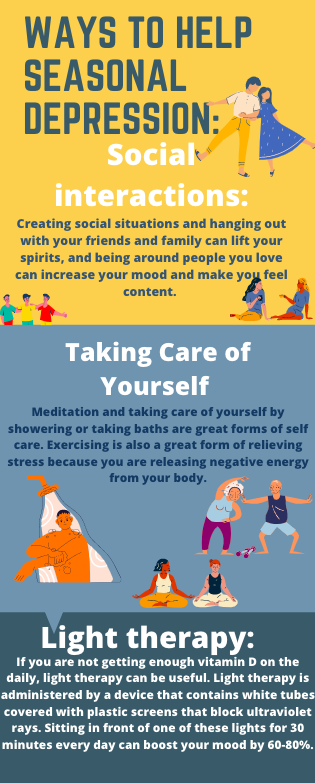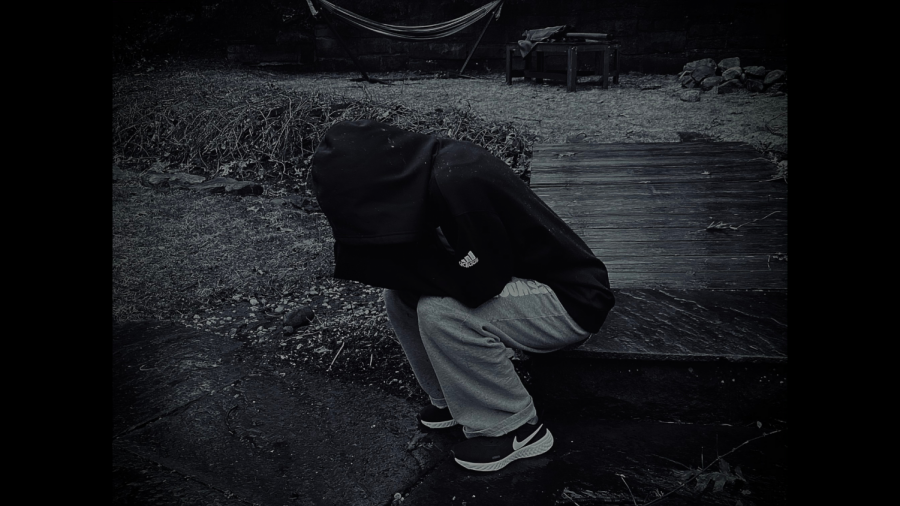Coping with seasonal depression
During the summer, people tend to be happier while in the winter, people have a tendency to be unhappy and out of sorts which invokes the subject of seasonal depression. Seasonal depression affects your daily life, as well as how you think and feel.
During the summer, people tend to be happier, more vibrant, and content with their lives. Meanwhile, in the winter, people have a tendency to be unhappy and out of sorts. This invokes the subject of seasonal depression.
The sun sets earlier in the winter and the weather drastically changes. The sun is rarely out and people are not receiving enough vitamin D, which comes in the form of sunlight. Vitamin D is some people’s main source of happiness, even if they do not know it.
Although there are different levels of depression, winter blues are extremely different from seasonal depression.
Seasonal depression affects one’s daily life, as well as how a person thinks and feels. On the other hand, winter blues bring about a feeling of sadness from time to time due to an event or simply due to being in an unpleasant mood.
According to American Psychiatric Disorder, people who suffer from anxiety, OCD, schizophrenia, major depressive disorder, and other mental health disorders are at the highest risk for seasonal depression.

As the National Alliance on Mental Illness states, one in five adults experienced mental illness each year. Seasonal depression is an extremely common form of depression.
Some symptoms of seasonal depression are trouble sleeping, headaches, stomachaches, decreased weight loss and appetite, thoughts of suicide, random bursts of energy, dissociation, and depersonalization.
Although not many people speak on the subject of dissociation and depersonalization, they are very common side effects when dealing with depression.
Dissociation is when people feel disconnected from their feelings, thoughts, surroundings, and memories, according to Very Well Wind. They have an out-of-body experience and feel as if they are not real. The world may appear as fuzzy and objects or people may be blurry.
Depersonalization is when someone feels as though the world is not real, as if a glass wall separates them from the rest of the world. Time will speed up, slow down, or stay still. These symptoms can last minutes, hours, days, or even weeks.
Many people who experience dissociation or depersonalization might feel as though they are crazy, but they are not – these are very common symptoms to experience.
If you are experiencing any of these emotions, please speak to a professional. Help can be given, and medicine may be prescribed. You can also talk to a trusted adult, teacher, friend, or call the national suicide hotline at 800-273-8255.
If you notice your friends or family seeming “off” or different than they usually appear, remember to check up on them and make sure they are okay. Despite people appearing functional, happy, and stable, they can be experiencing depression as well. Therefore, remember to check up on your happy friends too.












